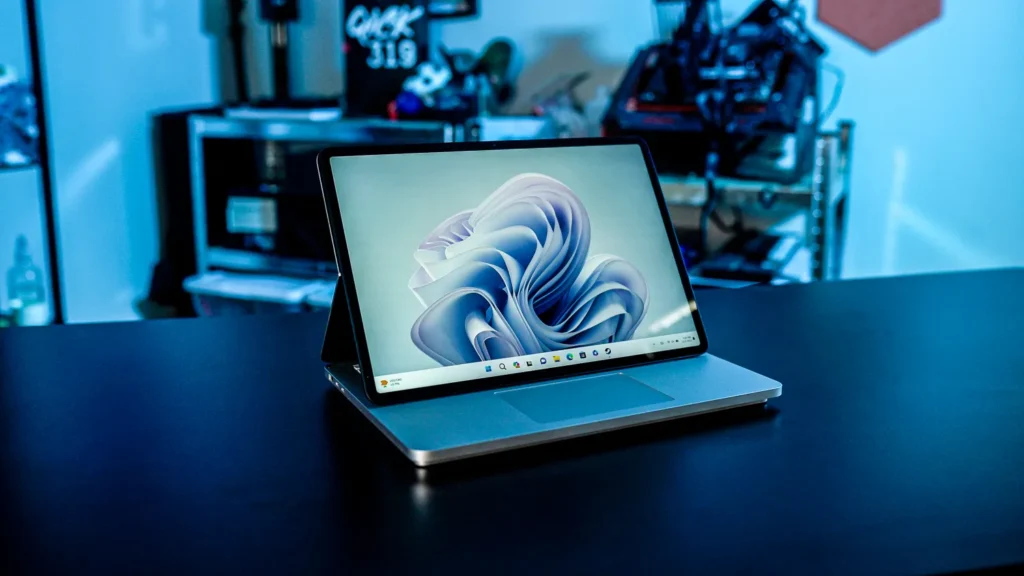A post by Andy Kirby, which highlighted the operating system’s minimalist design, brought unofficial version of Windows 11, known as “Windows 11 Government Edition,” to a large audience’s attention. This version, which isn’t an official Microsoft release, has attracted a lot of attention because it claims to remove ads and other features, making the interface clearer and possibly easier to use.
Windows 11 Government Edition is designed to cater to users frustrated with the increasingly commercialized nature of mainstream operating systems. It aims to address common grievances by removing built-in applications that many find intrusive or unnecessary. This includes major applications like Microsoft Edge and Windows Security, as well as more basic tools such as Camera, Media Player, Paint, and Clock. By eliminating these pre-installed features, the edition seeks to provide a streamlined interface with fewer distractions and a focus on essential functionalities.
One of the standout aspects of Windows 11 Government Edition is its exclusion of the Microsoft Store, which serves as the primary platform for downloading and installing applications on Windows systems. This omission poses a challenge for users accustomed to accessing a wide range of software through an integrated marketplace. Without the Microsoft Store, obtaining and managing new applications becomes more complex, potentially limiting the versatility of the operating system for everyday use.
In terms of available applications, Windows 11 Government Edition retains only essential tools like File Explorer, Settings, Windows Backup, Windows Tools, and Get Started. Notably, the Start Menu is intentionally bare, devoid of any pre-installed apps or shortcuts. This minimalist approach contrasts sharply with standard Windows 11 editions, which often come bundled with a variety of applications and services designed to enhance user experience but can also contribute to system bloat and increased complexity.
Despite its appeal to users seeking a cleaner operating environment, it’s crucial to note that Windows 11 Government Edition is not officially sanctioned or supported by Microsoft. Therefore, experts caution against downloading or installing it due to potential security risks and compatibility issues. While its emergence underscores a demand for a more streamlined Windows experience, relying on unofficial software versions carries inherent risks that could compromise system stability and data security.
The rise of Windows 11 Government Edition reflects broader dissatisfaction with the direction of mainstream operating systems, where advertisements and bundled applications have become increasingly pervasive. Microsoft, like many software developers, has integrated ads into various parts of the user interface, including the Start Menu, File Explorer, lock screen, and setup process. This commercialization strategy has drawn criticism from users who prefer a less cluttered and more user-centric computing environment.
Efforts to block ads in Windows 11 highlight ongoing frustrations among users seeking greater control over their computing experience. Despite these efforts, the prevalence of advertisements remains a contentious issue, prompting some users to explore alternative operating system versions or configurations that prioritize functionality over promotional content.
One notable omission in Windows 11 Government Edition is Microsoft Edge, Microsoft’s default web browser. Edge has faced scrutiny for its integration into Windows 11 and its persistent promotion as the default browser choice. Many users have expressed a desire to uninstall or disable Edge without encountering technical hurdles or reinstallation prompts. In response to regulatory pressures, such as those imposed by the European Union’s Digital Markets Act, Microsoft has made Edge and other applications uninstallable in EU regions, signaling potential shifts in global software practices.
Privacy concerns have also surfaced regarding features like Recall on Copilot+ PCs, which some users fear could monitor their activities without sufficient transparency or consent mechanisms. This issue underscores broader anxieties about data privacy and surveillance in software development, prompting calls for clearer user controls and opt-out options for intrusive features.
Despite its conceptual appeal, Windows 11 Government Edition is unlikely to become a mainstream alternative to Microsoft’s official releases. The practical challenges of maintaining and updating an unofficial operating system variant, coupled with potential legal and compatibility issues, make widespread adoption improbable. Moreover, any hypothetical release of a debloated Windows 11 version would likely come with additional costs or restrictions, limiting its appeal to a niche audience rather than the broader consumer market.
Windows 11 Government Edition’s unofficial status and accompanying hazards highlight the difficulties in striking a balance between user preferences and commercial software tactics, even though it may appeal to users looking for a streamlined and ad-free computing experience. The desire for operating systems that are both customized and privacy-preserving will persist as technology advances, influencing software ecosystem growth and trajectory and reshaping the future of digital innovation and user empowerment.
If you like the article please follow on THE UBJ.
